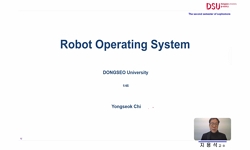<P>Reactive oxygen species (ROS), generated by ionizing radiation, has been implicated in its effect on living tissues. We confirmed the changes in the oxidative stress markers upon irradiation. We characterized the changes in the proteome profi...
http://chineseinput.net/에서 pinyin(병음)방식으로 중국어를 변환할 수 있습니다.
변환된 중국어를 복사하여 사용하시면 됩니다.
- 中文 을 입력하시려면 zhongwen을 입력하시고 space를누르시면됩니다.
- 北京 을 입력하시려면 beijing을 입력하시고 space를 누르시면 됩니다.
https://www.riss.kr/link?id=A107687626
-
저자
Park*, Eui‐ ; Chul ; Yoon, Jong‐ ; Bok ; Seong*, Jin‐ ; Sil ; Choi, Kyoung‐ ; Soo ; Kong, Eung‐ ; Sik ; Kim, Yun‐ ; Jeong ; Park, Young‐ ; Mee ; Park, Eun‐ ; Mi
- 발행기관
- 학술지명
- 권호사항
-
발행연도
2006
-
작성언어
-
- 주제어
-
등재정보
SCOPUS,SCIE
-
자료형태
학술저널
-
수록면
19-35(17쪽)
- 제공처
-
0
상세조회 -
0
다운로드
부가정보
다국어 초록 (Multilingual Abstract)
<P>Reactive oxygen species (ROS), generated by ionizing radiation, has been implicated in its effect on living tissues. We confirmed the changes in the oxidative stress markers upon irradiation. We characterized the changes in the proteome profile in rat liver after administering irradiation, and the affected proteins were identified by MALDI-TOF-MS and ESI-MS/MS. The identified proteins represent diverse sets of proteins participating in the cellular metabolism. Our results demonstrated that proteomics analysis is a useful method for characterization of a global proteome change caused by ionizing radiation to unravel the molecular mechanisms involved in the cellular responses to ionizing radiation.</P>






 ScienceON
ScienceON






